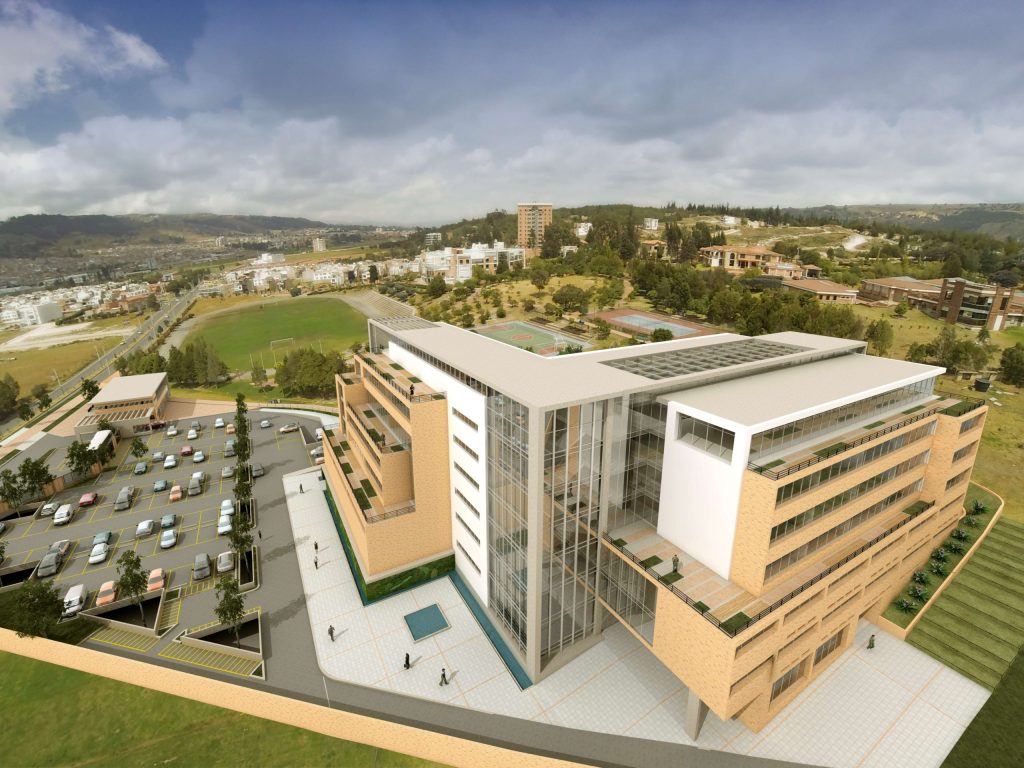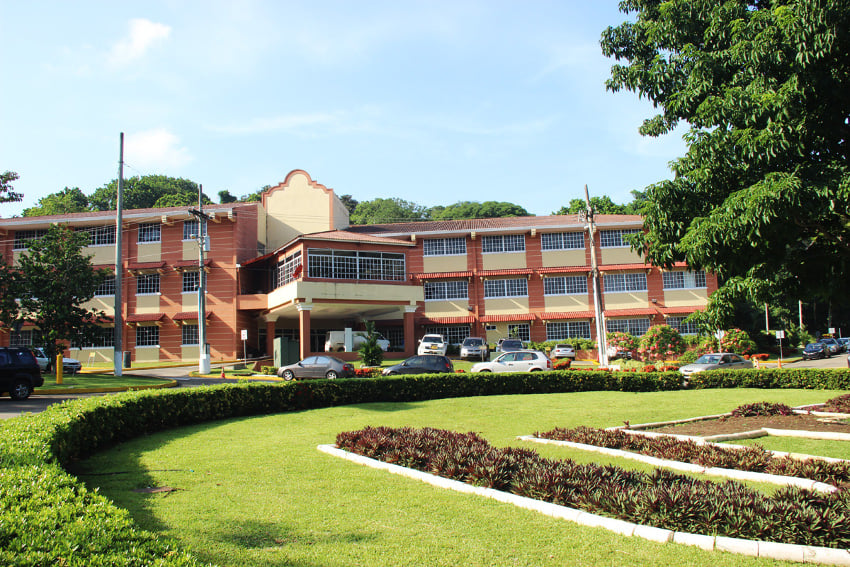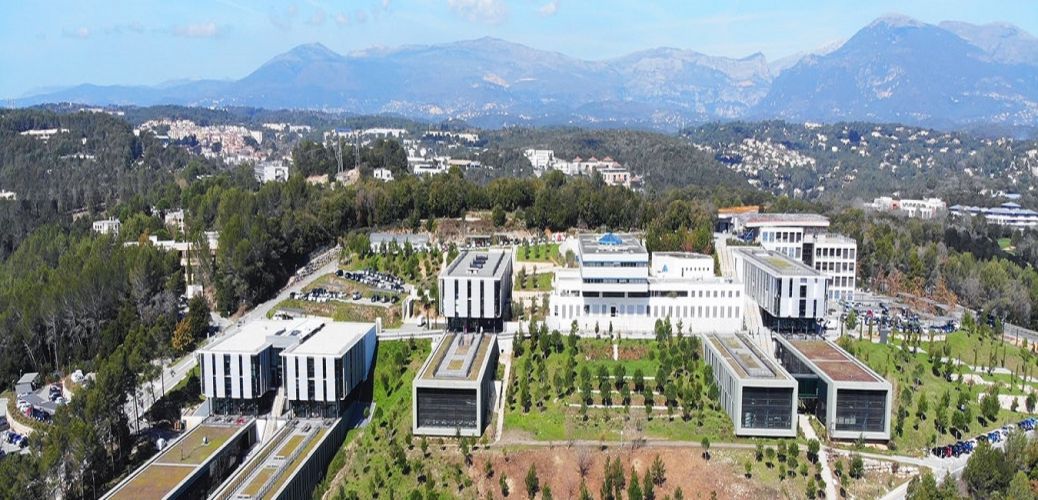Welcome to HydroLatinAmerica
HydroLatinAmerica is an intensive program within an academic framework organized by the Universitat Politècnica de Catalunya with the participation of different South American institution. The 2024 edition include the following participants:
- Pontificia Universidade Católica do Rio de Janeiro – Brazil (participant)
- Universidade Federal do Rio de Janeiro – Brazil (participant)
- Universidad Autónoma de Nuevo León – Mexico (participant)
- Universidad Nacional del Litoral – Argentina (participant)
- Universidad de Cuenca – Ecuador (participant)
- Universidad Santo Tomás, Tunja – Colombia (participant)
- Universidad Tecnológica de Panamá – Panamá (host)
- Université Côte d’Azur – France (co-coordinator)
- Universitat Politècnica de Catalunya – Spain (organization and coordination)

Universitat Politècnica de Catalunya (UPC)
One of the strongest universities in Spain, specialized in the fields of engineering, science, and architecture. UPC has about 27,000 students, including bachelor, master and doctorate, and about 3,000 teaching and research staff. The university is distributed over eight campuses, three of them in Barcelona.
Universidade Federal do Rio de Janeiro (UFRJ)
UFRJ’s history dates back to the beginning of the 19th century and is filled with remarkable scientific, cultural, and artistic accomplishments. It is currently the 3rd best university in Brazil and the 7th best university in Latin America (QS Rankings – 2018).
With many campuses and faculties scattered around Rio de Janeiro State, it comprises institutes, schools, and other facilities, including museums, hospitals, and the third largest ocean basin in the world for research on offshore oil exploitation.
The university has partnerships with several national and multinational enterprises, some of which have facilities on campus. Following a global trend, UFRJ creates and maintains cooperative relationships with institutions from every continent. It currently has partnerships with over 200 international institutions all over the world.


Pontificia Universidade Católica do Rio de Janeiro (PUC)
The Pontifícia Universidade Católica do Rio de Janeiro (PUC-Rio) is a community-based, philanthropic, and non-profit institution of higher education. Its mission is to produce and disseminate knowledge through teaching, research, and outreach activities, grounded in pluralism and democratic debates, with the ultimate goal of reflection, growth, and societal enrichment.
PUC-Rio embraces the internationalization of education and the exchange of cultures and knowledge in response to a globalized world. Its campus, spanning 104,000 square meters, fosters integration among courses and enables the development of multidisciplinary projects.
The decree authorizing the operation of the Faculdades Católicas was published on October 30, 1940, by then-president Getúlio Vargas. The activities of the first courses, Direito and Filosofia, began in March 1941. On January 20 of the following year, the university received the title of Pontifícia.
In 1948, the operation of the Escola Politécnica was authorized. For over 70 years, the university has been training civil engineers, initially through the Escola Politécnica and, since 1968, through the Departamento de Engenharia Civil. In 2020, the number of graduates reached 3,131 civil engineers, and since 2009, a bachelor’s degree in Environmental Engineering has also been offered.
Universidad Autónoma de Nuevo León (UANL)
The Universidad Autonoma de Nuevo Leon was officially founded in 1933, although its origins are older with the schools of Law, Medicine and Pharmacy, Escuela Normal, and Colegio Civil which were established before that time. These were key principles for the foundation of the institution which took place on September, 25th, 1933 with a total of 1,862 students and 218 professors.
At its inception, this university’s name was Universidad de Nuevo Leon, now U.A.N.L. stands for Universidad Autonoma de Nuevo Leon. The Maximum Academic Institution in the State originally consisted of the Schools of Law and Social Sciences, Medicine, Engineering, Chemistry, and Pharmacy, along with Escuela Normal, Escuela Industrial “Alvaro Obregón”, Technical High School “Pablo Livas”, Industrial High School of Women Labors “Pablo Livas”, and the School of Nursery and Obstetrics.


Universidad Nacional del Litoral (UNL)
Universidad Nacional del Litoral (UNL) was established under National Act Nº 10.861, which was enacted on October 17th, 1919. The university is the result of the 1918 university reform movement in Argentina, which advocated for the creation of democratic and self-governing institutions to provide free, open and public higher education. These ideas eventually spread to much of the rest of Latin America.
UNL was born as a regional university, with schools and institutes in the cities of Santa Fe, Paraná, Rosario and Corrientes.
The “Rectorado” building, whose construction was completed in 1935, houses the university’s administrative and governing bodies. This fine building has played host to events that have been real milestones in Argentina’s political, institutional and academic life, among which we can mention the 1957 and 1994 Constitutional Reform Assemblies whose members convened at the Paraninfo hall.
“Rectorado” and the UNL’s School of Law and Social Sciences are located in the same historical block in the heart of downtown Santa Fe and were designated as listed buildings in 2017.
Universidad de Cuenca (UCUENCA)
The Universidad de Cuenca, established in 1867, is a prominent public university located in Cuenca, Ecuador. It is the principal higher education institution in the Azuay Province and has a rich history of academic excellence and growth.
The university offers a wide range of programs across various faculties, including Engineering. The Faculty of Engineering offers internationally recognized academic programs that promote and lead technical preparation.
At the forefront of research, the Department of Civil Engineering (DIC) works in tandem with the progression of science and technology. Through the generation of knowledge and the implementation of modern practices, it actively contributes to the development of comprehensive solutions aimed at sustainability and environmental stewardship.


Universidad Santo Tomás, Tunja (UST)
A regional campus of Colombia’s oldest university, Universidad Santo Tomás, founded in 1580 by the Dominican Order. Located in the historic city of Tunja, Boyacá, this campus reflects the university’s long-standing commitment to academic excellence, ethical values, and social responsibility.
At the Tunja campus, we offer a wide range of undergraduate and postgraduate programs across diverse fields, including engineering, health sciences, law, social sciences, and education. Our academic approach emphasizes interdisciplinary learning, research, innovation, and community engagement.
Universidad Tecnológica de Panamá
The Technological University of Panama (UTP) is a public institution headquartered in Panama City, with seven regional centers and two university extensions across the country. Its roots trace back to the Faculty of Engineering at the University of Panama, evolving into the Polytechnic Institute in 1975 under Dr. Víctor Levi Sasso, and officially becoming UTP through Law 18 in 1981.
Since then, UTP has grown into a national leader in engineering education and research. In 1986, it was granted 60 hectares for its main campus, later named after Dr. Levi Sasso, who was honored as its founder and first elected Rector.
UTP pioneered Panama’s internet connectivity and has driven academic advancement through strategic planning, self-evaluation, and continuous improvement. The university offers 157 academic programs, including 7 doctorates, 59 master’s degrees, and 57 bachelor’s degrees, serving over 28,000 students with 2,002 faculty members.
As of 2024, UTP has graduated over 98,000 professionals and maintains strong ties with national and international partners, reinforcing its role as a hub for technological innovation and societal development.


Université Côte d’Azur has been an experimental university since 1 January 2020 replacing both the Université Nice Sophia Antipolis created in 1965 and the Communauté d’Universités et d’Etablissements Université Côte d’Azur created in 2015.
Université Côte d’Azur now includes 17 major academic establishments around the historic university core to create one of France’s top 10 research-intensive universities.
